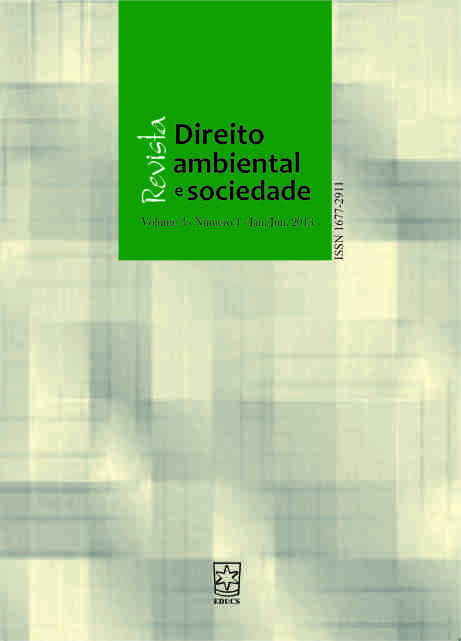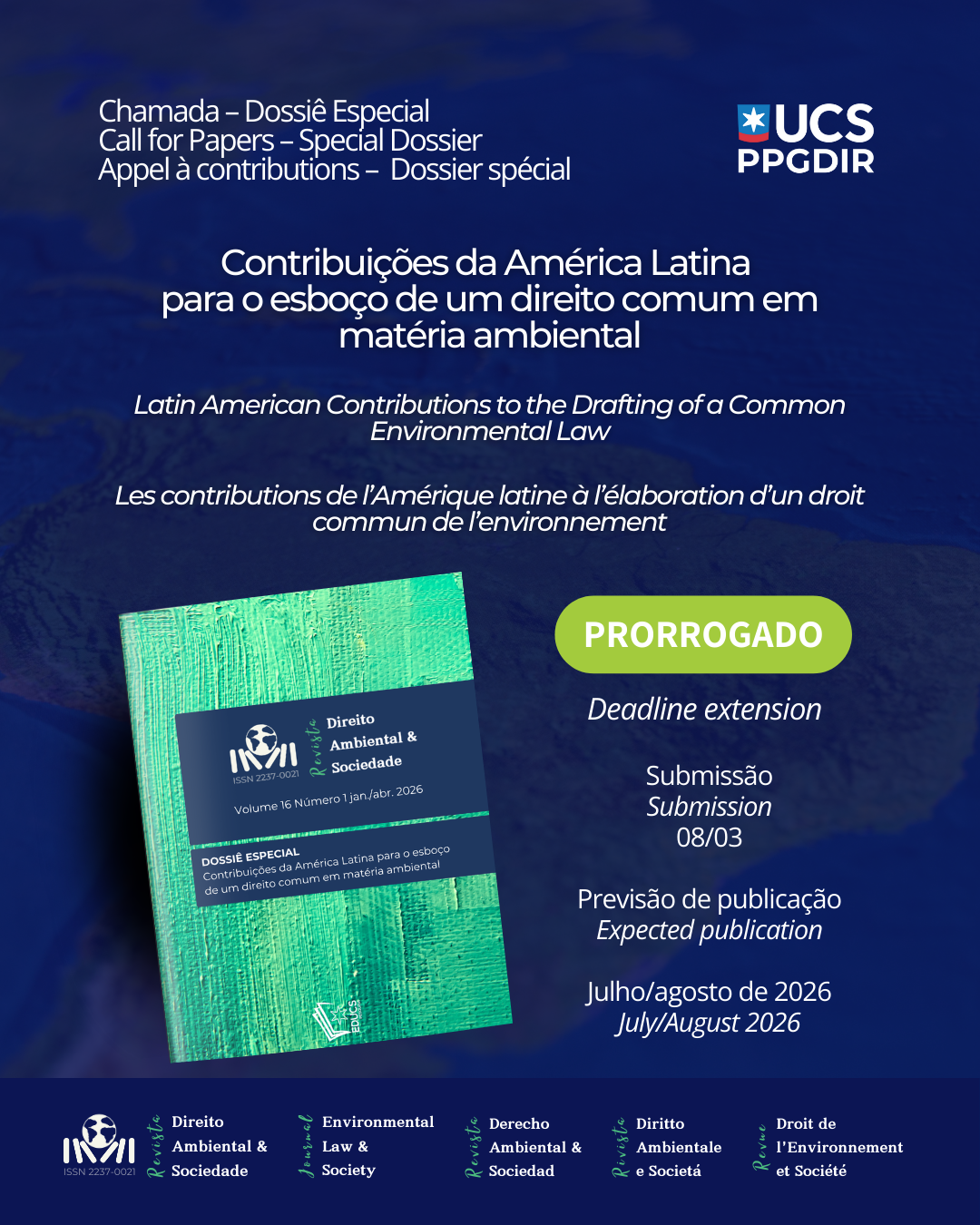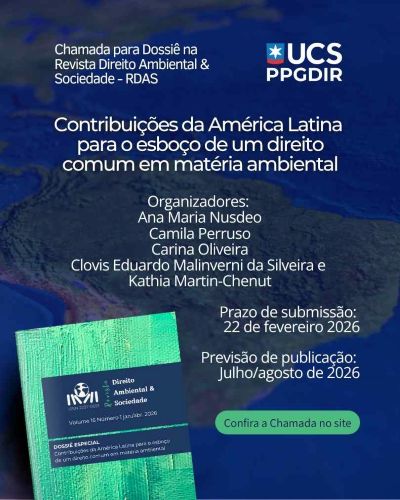A (DIS)FUNÇÃO SOCIOAMBIENTAL DA PROPRIEDADE NO NOVO CÓDIGO FLORESTAL BRASILEIRO: Uma análise à luz da órbita econômica constitucional
Resumo
Resumo: O presente artigo traz uma breve análise acerca da aplicabilidade do princípio da função socioambiental da propriedade no Código Florestal brasileiro (Lei Federal n. 12.651/2012), em um ambiente econômico cada vez mais dependente da exploração da propriedade rural. O “novo” diploma vem recebendo muitas críticas, principalmente ao reduzir as Áreas de Preservação Ambiental e de Reserva Legal e anistiar responsáveis por desmatamentos ilegais. A abordagem do tema inicia-se com o percurso da função social da propriedade no ordenamento jurídico brasileiro e sua inserção como princípio norteador do atual Código Florestal, observando-se a trajetória da proteção das florestas e matas nativas no cenário nacional para, posteriormente, verificar se a legislação contemporânea promove ou não a função socioambiental da propriedade, em consonância com as diretrizes constitucionais e exigências econômicas. Trata-se de um caminho tortuoso, visto que, embora o país ocupe posição de destaque como potência agrícola, não dispõe de instrumentos eficazes para a proteção das florestas e vegetações nativas e o resultado é sempre o mesmo: o privilégio das atividades econômicas e a degradação das florestas e vegetações nativas. Indaga-se se a função socioambiental da propriedade, como meio de salvaguarda dos bens ainda não vulnerados e fomento de um desenvolvimento sustentável, seria o caminho para restaurar o equilíbrio entre a exploração econômica e a preservação da riqueza natural para as gerações presentes e futuras, vez que desequilíbrios ambientais deságuam em desequilíbrios econômicos e sociais.
Palavras-chave: Função socioambiental. Código Florestal. Economia. Preservação ambiental.
Abstract: This paper presents a brief analysis about the applicability of the social and environmental porperty’s function in Brazilian Forest Code (Federal Law. 12.651/2012), in an economic environment increasingly dependent on the exploitation of rural property. The "new" diploma has received much criticism, mainly by reducing the Environmental Preservation Areas and Legal Reserves and amnesty responsible for illegal deforestation. The theme approach starts with the route of the social function of property in the Brazilian legal system and their integration as a guiding principle of the current Forest Code, observing the trajectory of the forests and native vegetation’s protection on the national scene to later verify whether contemporary legislation promotes or not social and environmental function of property, in line with the constitutional guidelines and economic demands. It is a tortuous path, since although the country occups a prominent position as an agricultural power, lacks effective instruments for the protection of forests and native vegetation and the result is always the same: the privilege of economic activities and degradation of forests and native vegetation. It inquires the social and environmental function of property as a goods not violate safeguarding way and promotion of sustainable development, it would be the way to restore the balance between economic exploitation and preservation of natural wealth for present and
future generations, rather environmental imbalances that flow into economic and social imbalances.
Keywords: Social and environmental function. Forest Code. Economy. Environmental Conservation.
Downloads
Publicado
Como Citar
Edição
Seção
Licença
Você tem o direito de:
Compartilhar — copiar e redistribuir o material em qualquer suporte ou formato para qualquer fim, mesmo que comercial.
Adaptar — remixar, transformar, e criar a partir do material para qualquer fim, mesmo que comercial.
O licenciante não pode revogar estes direitos desde que você respeite os termos da licença.
De acordo com os termos seguintes:
Atribuição — Você deve dar o crédito apropriado , prover um link para a licença e indicar se mudanças foram feitas . Você deve fazê-lo em qualquer circunstância razoável, mas de nenhuma maneira que sugira que o licenciante apoia você ou o seu uso.
Sem restrições adicionais — Você não pode aplicar termos jurídicos ou medidas de caráter tecnológico que restrinjam legalmente outros de fazerem algo que a licença permita.
Avisos:
Você não tem de cumprir com os termos da licença relativamente a elementos do material que estejam no domínio público ou cuja utilização seja permitida por uma exceção ou limitação que seja aplicável.
Não são dadas quaisquer garantias. A licença pode não lhe dar todas as autorizações necessárias para o uso pretendido. Por exemplo, outros direitos, tais como direitos de imagem, de privacidade ou direitos morais , podem limitar o uso do material.











